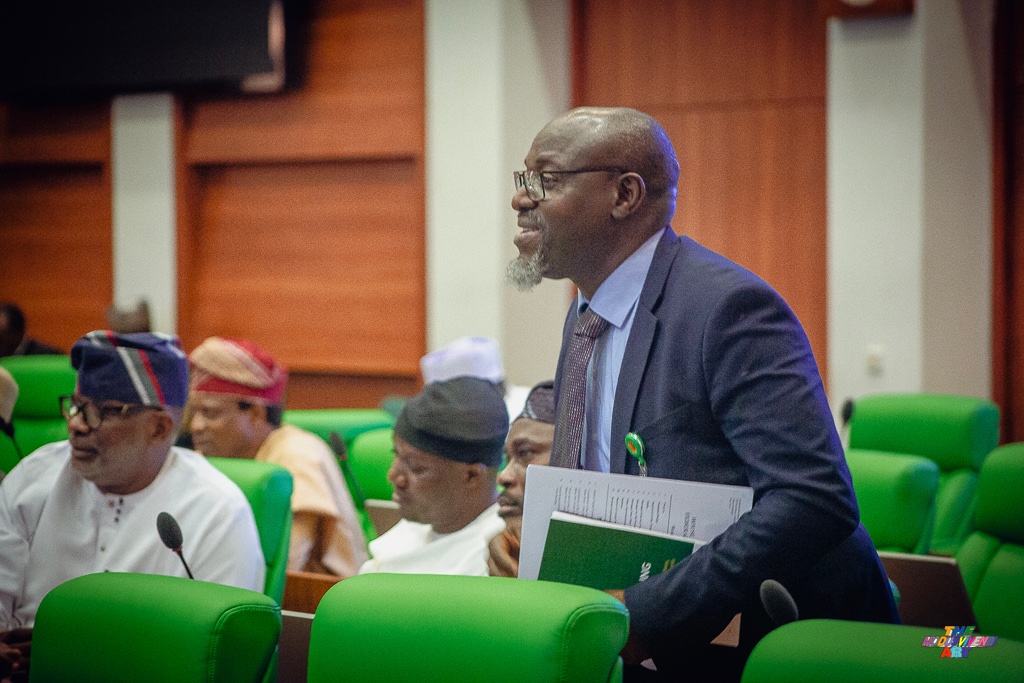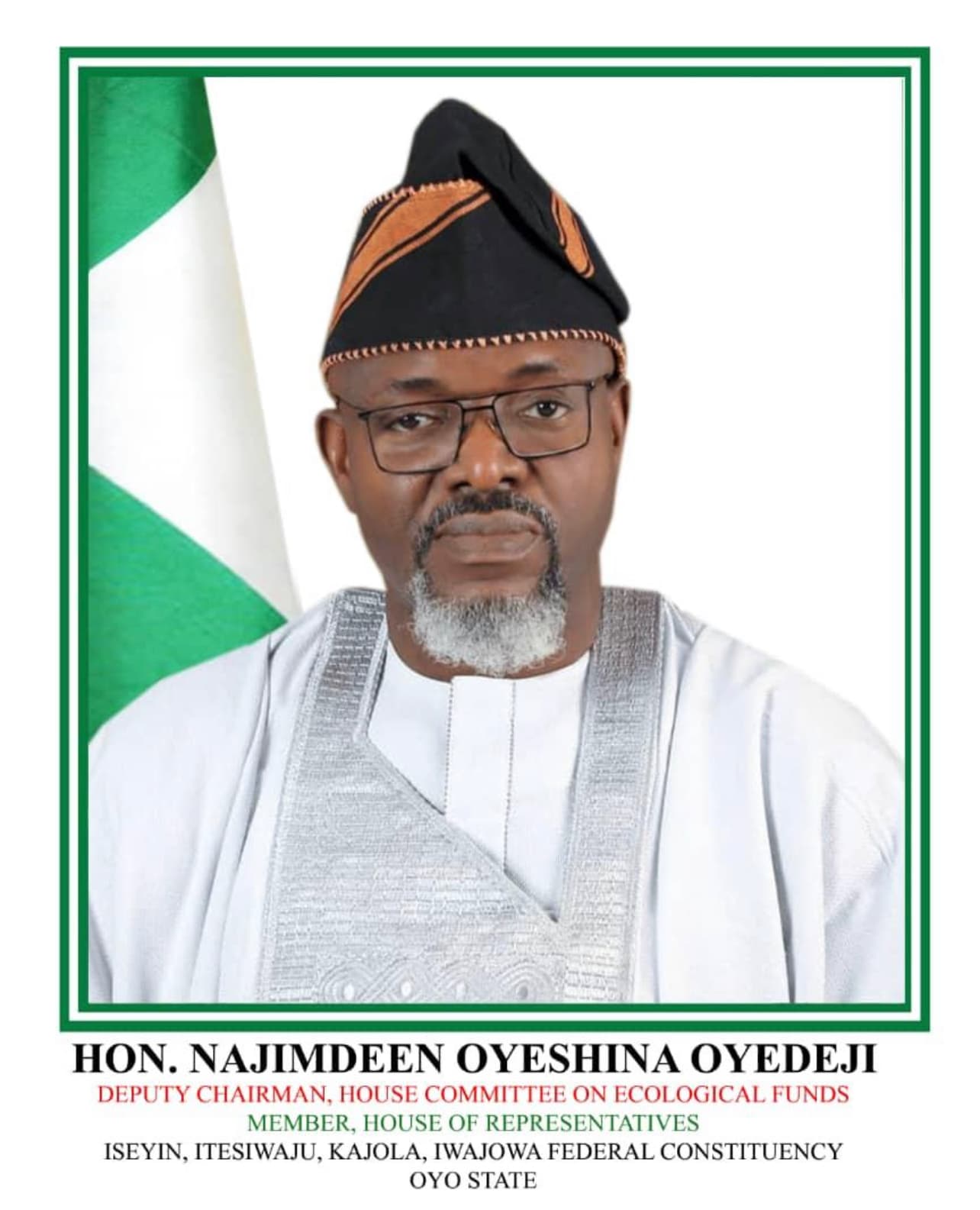


Honourable Oyeshina Oyedeji is a distinguished statesman and visionary leader who truly believes in the power of people and progress. Representing the good people of Iseyin, Itesiwaju, Kajola, and Iwajowa Federal Constituency, he has dedicated himself to championing policies that bring real growth, fairness, and opportunity to every community.
Known for his integrity, philanthropy, innovative ideas, and deep love for service, Hon. Shina Oyedeji continues to lead by example — inspiring hope, driving meaningful change, and working every day to move Nigeria forward.
Through tireless advocacy for youth empowerment, rural development, quality education, and healthcare accessibility, he has become a symbol of responsive governance and people-centered leadership. His commitment to inclusive progress has touched countless lives and transformed underrepresented communities into centers of renewed ambition and purpose.
Over the years, he has gained widespread respect for his steadfast dedication to grassroots development. His influence can be seen everywhere in his constituency, from constructing schools and medical facilities to empowering young people and farmers through sustainable initiatives. According to him, effective leadership must be both pragmatic and human—it involves showing up, paying attention, and producing outcomes that enhance day-to-day living. The foundations of Hon. Oyedeji's leadership style are accountability, humility, and a strong faith in each Nigerian's potential. He approaches every challenge with empathy, wisdom, and bravery, whether he is interacting with local leaders, addressing the National Assembly floor, or coaching up-and-coming changemakers.
His dedication to inclusive governance and progressive policies continues to inspire a new generation of leaders. Hon. Shina Oyedeji is not just a representative of the people — he is a reflection of their hopes, their resilience, and their aspirations for a brighter future.
Iseyin is a city located in the Nigerian state of Oyo. It is approximately 100 km (62mi) north of Ibadan. The city was estimated to have a population of 236,000, per a United Nations 2005 estimate, which increased to 362,990 in 2011, and has a total land mass of 1,419 km2 (548 sq mi). Iseyin is centrally located and accessible via road networks from Ibadan, Oyo, Abeokuta, and Ogbomoso. There are expanses of land which can be used for industrial, agricultural and institutional purposes in and around the city. The title of the monarch of Iseyin is "The Aseyin of Iseyin".
There are a lot of educational institutions in Iseyin out of which are Ladoke Akintola University of Technology Iseyin campus, Polytechnic like SAF Polytechnic, Secondary Institutions like Kelani College Iseyin, Iseyin is a city located in the Nigerian state of Oyo. It is approximately 100 km (62 mi) north of Ibadan. The city was estimated to have a population of 236,000, per a United Nations 2005 estimate, which increased to 362,990 in 2011, and has a total land mass of 1,419 km2 (548 sq mi). Iseyin is centrally located and accessible via road networks from Ibadan, Oyo, Abeokuta, and Ogbomoso. There are expanses of land which can be used for industrial, agricultural and institutional purposes in and around the city. The title of the monarch of Iseyin is "The Aseyin of Iseyin". There are a lot of educational institutions in Iseyin out of which are Ladoke Akintola University of Technology Iseyin campus, Polytechnic like SAF Polytechnic, Secondary Institutions like Kelani College Iseyin.
Itesiwaju local government was created on 4th December 1996 by the federal Military Government headed by General Sanni Abacha. Itesiwaju reflects the strong belief of the people on the ontological significance of name. It represents the desire of a people yearning for rapid development of their area. Although the inhabitants of the local government are predominantly Yoruba people, other people of diverse ethnic backgrounds abound. The various other tribes that could be found in the council area include, Hausa, Fulani, Igbo, Idoma, Egede and other African countries nationals such as Ghanaians, Cotonou and Togolese. They engage in cattle rearing, farming, mining and other commercial activities.
Itesiwaju local government was created on 4th December 1996 by the federal Military Government headed by General Sanni Abacha. It formed part of the additional 183 local governments created then by the administration which brought the total numbers of local governments in the federation to 774. The local government has its administrative headquarters located at Otu, a distance of 40 kilometers from Itesiwaju, the parent local government from which Itesiwaju local government was carved out.
The name “Itesiwaju” is not an acronym, but a word in Yoruba which could be translated as, “progress” or "onward movement” while some local governments in the federation adopted acronyms, geographical locations or their main principal towns as mere mark of identity. Itesiwaju reflects the strong belief of the people on the ontological significance of names. It represents the desire of a people yearning for rapid development of their area. Although the inhabitants of the local government are predominantly Yoruba people, other people of diverse ethnic backgrounds abound. The various other tribes that could be found in the council area include, Hausa, Fulani, Igbo, Idoma, Egede and other African countries nationals such as Ghanaians, Cotonou and Togolese. They engage in cattle rearing, farming, mining and other commercial activities.
Kajola local government area is situated in Oyo state. Southwest Nigeria and has its headquarters in the town of Okeho. The towns and villages that make up Kajola LGA include Ilua, Ilero, Isemi ile, Iwere-oke, Ilayi-oke, Ayetoro oke, Agbamo, and Alapola. The population of Kajola LGA is estimated at 173,442 inhabitants with the vast majority of the area's inhabitants being members of the Yoruba ethnic division. The Yoruba language is extensively spoken in the area while the religions of Christianity and Islam are widely practiced in the area. A number of traditional rulers are found in Kajola LGA and these include the Onjo of Okeho while the festivals celebrated in Kajola LGA include the Alasi festival.
Kajola LGA occupies a total area of 609 square kilometres and has an average temperature of 28 degrees centigrade. The area is well forested with an average humidity level of 60 percent. The average wind speed in Kajola LGA is 11 km/h. Farming is a key economic activity in Kajola LGA with crops such as okro, pepper, and melon cultivated in the area. Trade also flourishes in the area with the LGA hosting a number of markets where a variety of commodities are bought and sold by the area's dwellers. Other important economic enterprises undertaken by people of Kajola LGA include textile weaving and dyeing, crafts making, and hunting. Iwajowa local government area is in Oyo state, South-west Nigeria and has its headquarters in the town of Iwere-ile. Towns and villages that make up Iwajowa LGA include Ijio, Jokolo, Ofeegun, Ijeomeso, Iganna, Elekokan, Itasa, Tudi, and Ayegun. The estimated population of Iwajowa LGA is put at 150,738 inhabitants with the vast majority of the area's dwellers being members of the Yoruba ethnic group. The Gegun of Aiyetoro-ile is one of the prominent traditional rulers in Iwajowa LGA.
Iwajowa LGA is largely known for the massive production, sale, and export of charcoal. The area also has a vibrant agricultural sector with a wide variety of crops such as cashew and cocoa cultivated in the area. Other important economic enterprises undertaken by people of Iwajowa LGA include trade and craftsmanship. Iwajowa LGA was created on the 4th of December 1996 from the Kajola LGA.
Believes in a future where every individual has access to opportunities that allow them to thrive.
Building a future where everyone regardless of background or location has access to high-quality education that equips them with the knowledge and skills to thrive in a changing world.
Building a resilient economy that creates sustainable jobs and reduces poverty for all citizens through strategic investment in infrastructure, and empowerment of the workforce.
Promoting a system where transparency is not just a promise but a practice, and where every action is guided by the principles of honesty, service, and the public good.
Join hands with Honourable Shina Oyedeji in building a better future for our communities. Reach out, collaborate, or get involved today.
Get In Touch